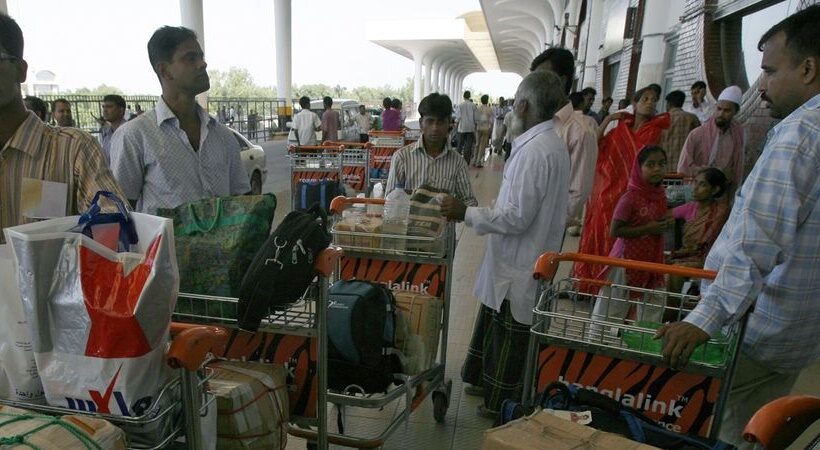In the pre-pandemic times, 2017, Shafiq Rehman (name changed due to the condition of anonymity) from Uttar Pradesh’s Hardoi district went to Saudi Arabia for better prospects professionally. He desired a good life for his family members that included the best possible education for his children and a roof over their heads that they can call their own. After arriving in Saudi, he managed to secure the job of a clerk in a tiny retail outlet in Jeddah through a recruitment agent. At this place, he was promised a monthly salary of 2,000 SR (Rs 42,320) apart from a bachelor accommodation facility. This turned out to be a decent enough job for him compared to the one at his native place.
Life was going on smoothly for Rehman till the beginning of 2018. But in March of that year, he was told by his superior that his services are no longer required for the company. This piece of information hit him like a ton of bricks and it took him some time to recover from the same. Afterwards, he mustered some courage to request his superior not to sack him, even if that means cutting down a few hundred from his monthly package. But his superior told him he cannot continue in the company under any circumstances as the post that he was holding has been nationalized, implying that now it is exclusively reserved for Saudi nationals.
The Nationalisation Drive Surfaces Like A Disaster
“I had no alternative left but to return home. Due to the sudden retrenchment, I could even get the loan that I had applied for a month back,” Rehman recounted the happenings of four years back with moist eyes to an online news platform. This is not a story in isolation as there have been several instances of expats, especially Asian, losing their jobs in Oman and Kuwait as well apart from Saudi Arabia, due to their sudden decision of reserving certain posts exclusively for locals in the country’s job sector. And one cannot blame countries like Saudi or Kuwait for the same as they had genuine reasons for taking such extreme measures.
When it comes to Saudi Arabia, as per its Vision 2030 reforms of 2016, the country decided to minimize the number of its unemployed citizens, especially in the private sector. In fact, during the second last quarter of 2016, Saudi Arabia’s unemployment rate jumped to 12.1 per cent, a four-year high, as per Forbes Magazine. So, to make the ethnic population a part of the Saudi workforce the country had to initiate a nationalization drive.
Many Asians Were Affected By Restrictive Employment Policy
Critically, there were several Asian populations employed in small retail outlets like Rehman in 2016 and 2017. But they all lost their jobs in 2018 as in January of the same year, the Saudi Minister of Labour gave an order identifying 12 categories of retail work where only Saudi nationals can be accommodated. The reserved jobs comprise the sale of building materials, furniture and confectionery, aside from auto parts, cars and motorcycles.
This led to several job losses in Saudi Arabia. In fact, as per a news report, close to 450-500 migrants were retrenched per week. Resultantly, many from Asia came back to their home countries due to nationalisation. This comes on top of similar drives in Kuwait and Oman to bring their local population into the job sector. Additionally, to ensure strict implementation, the Oman government is also observing its private sector’s nationalisation procedures closely and in case any company is found flouting the norms issued by the regime then such a company runs the risk of a ban as well.
Life Is No That Bad Despite The Setbacks
Lastly, to bring some happiness into the sordid sagas thus far, numerous people like Rehman are currently busy doing some odd jobs or running errands back in their respective homelands. As for Rehman, he had started a roadside eating outlet near his home in Hardoi and he somehow managed close to 15,000 per month through the new venture. The amount might seem small but it keeps the cooking gas in his household burning regularly to meet one of the basic needs of human beings. This is not a bad deal these days, especially in the era of the pandemic. However, during the pandemic, he was forced to do the food business from his minuscule home, which used to be taken away by a few customers. “My business almost halved during the pandemic, but nobody at my house goes to bed on an empty stomach,” concludes Rehman with a manufactured laugh.
So, life goes on for Rehman and several others despite the setback they had to endure in the Gulf countries a few years back.



















